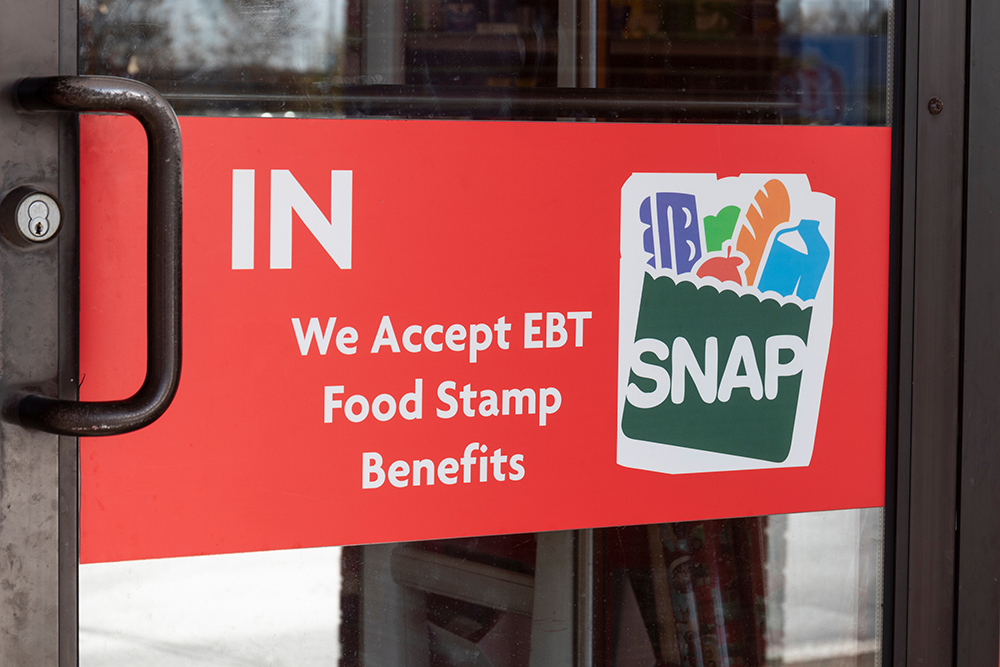by Suzanne Potter
California News Service
Groups that fight hunger say they’re “deeply disappointed” in the new budget proposal released Tuesday by Gov. Gavin Newsom.
Last year, the Legislature approved $40 million to expand food assistance to low-income people over age 55, regardless of immigration status. But now, the governor wants to delay it until 2027.
Betzabel Estudillo, director of engagement for the group Nourish California – part of the Food 4 All Campaign – said she hoped the California Food Assistance Program would be expanded starting next year.
“It’s just not what we were expecting, considering how much California immigrants are struggling to access the food they need,” said Estudillo. “With inflation and the high cost of food, immigrant families are really, really hurting right now. ”
The governor’s budget projects a gap of more than $22 billion in the next fiscal year.
Right now, the California Food Assistance Program provides income-eligible, legal immigrants with a monthly electronic benefit transfer card – similar to CalFresh – that can be used at grocery stores and farmer’s markets.
However, it does not cover undocumented people, DACA recipients or people with Temporary Protected Status.
Estudillo said the “Food 4 All” coalition had also asked for $548 million a year, to include Californians age 54 and under in the program regardless of immigration status.
But that wasn’t part of the governor’s initial proposal.
“We’re committed to working with the legislative leadership and the governor’s office,” said Estudillo, “to ensure that all Californians, regardless of age or immigration status, have timely access to the food they need. No exceptions, no exclusions.”
The expansion of the program to income-eligible immigrants over age 55 would cover 75,000 people.
Last year, the Legislative Analyst’s Office estimated that between 690,000 and 840,000 Californians would meet the income requirements if the program was expanded to all ages.
Feds issue warning about student-loan debt-relief scams
Scammers targeting student-loan borrowers are shifting into high gear – spurred by the uncertainty surrounding President Joseph R. Biden’s debt-cancellation plan. The Supreme Court will hear a case in late February that seeks to strike down the administration’s plan to offer up to $20,000 in debt relief to low-income student loan borrowers.
Michelle Grajales, staff attorney with the Federal Trade Commission attorney, said fraudsters are playing on people’s anxieties.
“A major red flag is any company that calls you up and asks you to pay now for help with your loans later. Because that’s something that’s specifically prohibited under one of the rules we enforce. And so it is really unlikely to be a legitimate company,” she said.
The president’s debt-cancellation plan is currently on hold while the litigation continues, so it is not processing any applications. The website of the U.S. Department of Education, studentaid.gov, has a link to sign up to be notified if the program is restarted. The pause on federal student loan payments has been extended until the litigation is resolved. The best place to start for accurate information about your loans is to contact your federal loan servicer.
Some scams promise to reduce or zero out your monthly payment, and some target parents who have co-signed on Parent Plus loans. Grijales said the familiar adage applies: “if it sounds too good to be true, it probably is,” she said.
“It could be loan forgiveness. It could be, ‘Hey, pay us X amount, and we’ll get your loans forgiven right now, or we’ll get some large amounts of your principal balance forgiven or canceled,’ right? And that might be a benefit that the consumer doesn’t actually qualify for,” she said.
sShe added that other scams are circulating where they purport to be your loan servicer and ask that you route your payment through them. Other scams are intended primarily to get people to divulge their personal identity or banking information. For more tips, go to the Federal Trade Commission website.



